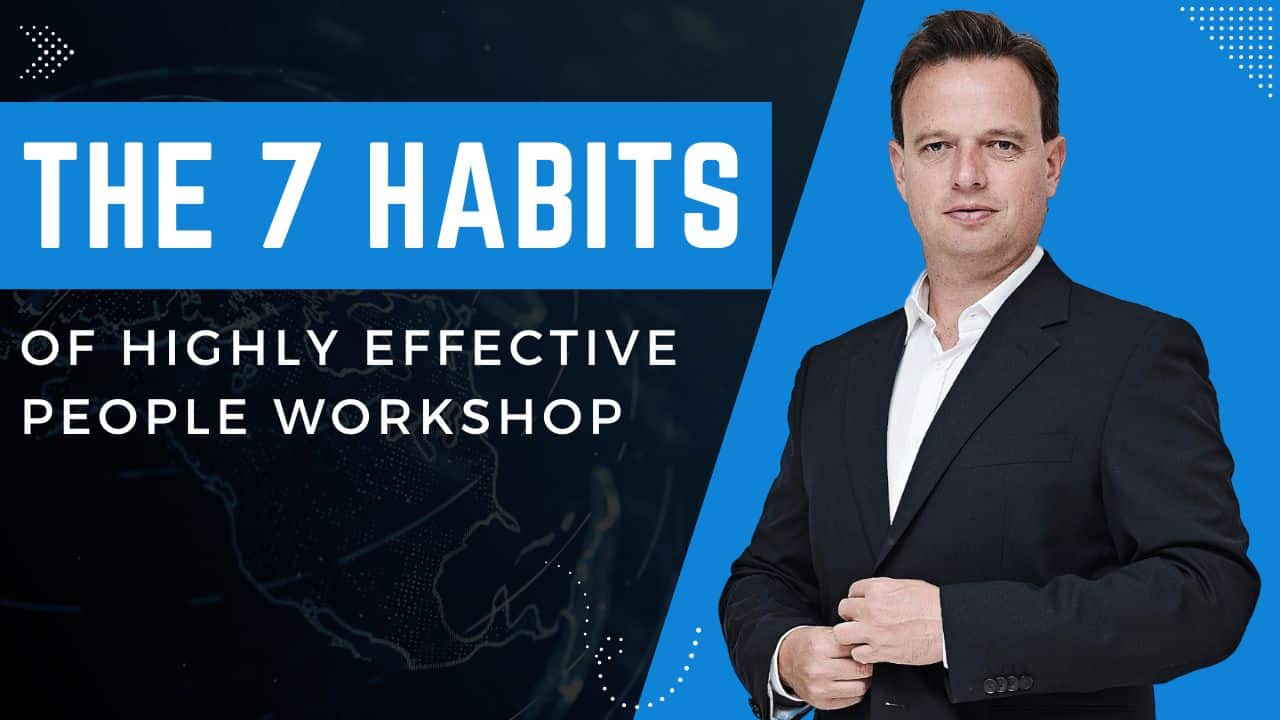The book The 7 Habits of Highly Effective People by Stephen R. Covey is seminal for its timeless wisdom, practical insights, and potential to empower individuals to lead more fulfilling and impactful lives.
Embracing the 7 habits benefits employees individually and contributes to a positive work environment, strong team dynamics, and organizational success.
I’ve found by pouring focus on the 7 habits and cultivating them, team members can:
- Enhance their professional effectiveness.
- Improve their personal well-being.
- Increase their overall impact in the workplace.
Here's a simple 3-step workshop any team can run based on "The 7 Habits of Highly Effective People" by Stephen R. Covey.
Let’s get into it…
Objective
To help a team or organisation leverage the insights in Stephen R. Covey's book “The 7 Habits of Highly Effective People”.
Step 1 - Understanding the Seven Habits
Objective: Introduce participants to the seven habits and help them understand how these habits contribute to personal and professional effectiveness.
Activities:
- Presentation: Begin with an overview of each of the seven habits: Be Proactive, Begin with the End in Mind, Put First Things First, Think Win-Win, Seek First to Understand, Then to Be Understood, Synergize, and Sharpen the Saw. Ask for examples of each habit in action and discuss their significance as a group.
- Personal Assessment: Distribute a self-assessment tool based on the seven habits, such as our Habit Scorecard (download free below) or a FranklinCovey Assessment, and have participants evaluate their strengths and areas for improvement in each habit.
- Group Discussion: Facilitate a discussion in which participants reflect on how they currently practice each habit in their lives. Encourage them to share examples of times when they've experienced the positive impact of these habits or struggled to apply them.
Step 2 - Applying the Habits in Daily Life
Objective: Help participants develop practical strategies for integrating the seven habits into their daily routines and decision-making processes.
Activities:
- Habit Formation Exercise: Guide participants through an exercise where they choose one habit to focus on improving over the workshop duration. Encourage them to set specific, measurable goals and identify concrete actions they can take to develop this habit.
- Role-Playing Scenarios: Divide participants into small groups and present them with hypothetical scenarios that require applying one or more of the seven habits. Have each group discuss how they would approach the situation using the principles outlined in the previous step.
- Personal Action Plan: Have participants create a personalized action plan for incorporating the seven habits into their daily lives. Encourage them to identify potential obstacles and brainstorm strategies for overcoming them, as well as ways to hold themselves accountable.
Step 3 - Cultivating the Habits and Continuous Improvement
Objective: Empower participants to leverage the effects of the seven habits and commit to ongoing growth and development.
Activities:
- Habit Synergy Exercise: Facilitate a group activity in which participants explore how the seven habits interact and reinforce each other. Encourage them to identify opportunities to leverage multiple habits simultaneously to enhance their effectiveness.
- Accountability Partnerships: Pair participants up and encourage them to serve as accountability partners for each other's habit development journey. Have them schedule regular check-ins to support, share progress, and offer constructive feedback.
- Reflective Practice: Conclude the workshop with a reflection session, during which participants review what they have learned and set intentions for applying it moving forward. Encourage them to reflect regularly and refine their habits to improve continuously.
Conclusion
Encourage participants to stay committed to their habit development goals and offer resources for further exploration, such as additional readings or workshops on specific habits.
Especially if you have noticed any trends across the group where one or two of the habits need work.
Remember, there’s a reason this book, which was written in 1989, is still relevant today. It’s timeless.
So, take advantage of the insights contained within and use them to help your team grow.
Good luck, and see you next week.

